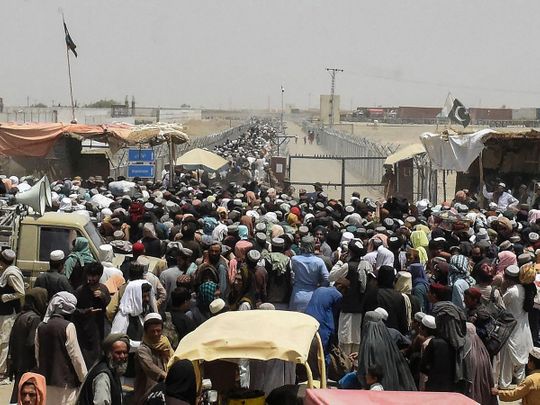
Islamabad: The national security advisers (NSA) of Pakistan and the United States discussed bilateral ties and a negotiated political settlement in Afghanistan following the withdrawal of US troops.
Pakistan NSA Dr Moeed Yusuf and his American counterpart Jake Sullivan met in Washington DC to exchange views on the regional security situation. This was the second meeting between the two officials who first met in Geneva in May in the first high-level physical contact between the two sides since the Biden administration took office.
“Had a positive follow-up meeting with NSA Jake Sullivan today in Washington,” Yusuf said in his tweet. They reviewed the progress made since the “Geneva meeting and discussed bilateral, regional and global issues of mutual interest.” The two sides “agreed to sustain the momentum in Pak-US bilateral cooperation” he said.
Jake Sullivan said that he and Dr Yusuf met to “consult on regional connectivity and security, and other areas of mutual cooperation,” adding that they “discussed the urgent need for a reduction in violence in Afghanistan and a negotiated political settlement to the conflict.”
Pakistan NSA is currently in Washington as part of the high-level engagements between the two countries. He will also call on other US legislators, US-based think tanks and media, and interact with the Pakistani community during the official visit.
Pakistan’s Prime Minister Imran Khan had declared in the parliament that Pakistan could be “partners with the United States in peace but never in conflict” again. Khan has said that Pakistan “has no favourites” and the country desires good relations with whoever the Afghan people choose.
Pakistani officials say the country is making every possible effort for peace in Afghanistan because a prolonged civil war in the neighbouring country may spill over chaos into Pakistan.
Pakistan, which shares the longest border (2,640 km) with war-torn Afghanistan, is facing two immediate threats: terrorism and influx of refugees. Dr Mooed earlier expressed fears that “members of banned terror outfits like the Tehrik-e-Taliban Pakistan (TTP) might enter Pakistan from Afghanistan in the guise of refugees” leading to the increased threat of terror attacks.












